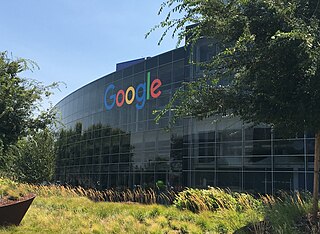Related Research Articles
Arbitration, in the context of the law of the United States, is a form of alternative dispute resolution. Specifically, arbitration is an alternative to litigation through which the parties to a dispute agree to submit their respective evidence and legal arguments to a neutral third party for resolution. In practice arbitration is generally used as a substitute for litigation, particularly when the judicial process is perceived as too slow, expensive or biased. In some contexts, an arbitrator may be described as an umpire.

A non-disclosure agreement (NDA), also known as a confidentiality agreement (CA), confidential disclosure agreement (CDA), proprietary information agreement (PIA), or secrecy agreement (SA), is a legal contract or part of a contract between at least two parties that outlines confidential material, knowledge, or information that the parties wish to share with one another for certain purposes, but wish to restrict access to. Doctor–patient confidentiality, attorney–client privilege, priest–penitent privilege and bank–client confidentiality agreements are examples of NDAs, which are often not enshrined in a written contract between the parties.

In the United States, antitrust law is a collection of mostly federal laws that regulate the conduct and organization of businesses to promote competition and prevent unjustified monopolies. The three main U.S. antitrust statutes are the Sherman Act of 1890, the Clayton Act of 1914, and the Federal Trade Commission Act of 1914. These acts serve three major functions. First, Section 1 of the Sherman Act prohibits price fixing and the operation of cartels, and prohibits other collusive practices that unreasonably restrain trade. Second, Section 7 of the Clayton Act restricts the mergers and acquisitions of organizations that may substantially lessen competition or tend to create a monopoly. Third, Section 2 of the Sherman Act prohibits monopolization.
Collusion is a deceitful agreement or secret cooperation between two or more parties to limit open competition by deceiving, misleading or defrauding others of their legal right. Collusion is not always considered illegal. It can be used to attain objectives forbidden by law; for example, by defrauding or gaining an unfair market advantage. It is an agreement among firms or individuals to divide a market, set prices, limit production or limit opportunities. It can involve "unions, wage fixing, kickbacks, or misrepresenting the independence of the relationship between the colluding parties". In legal terms, all acts effected by collusion are considered void.
An employment contract or contract of employment is a kind of contract used in labour law to attribute rights and responsibilities between parties to a bargain. The contract is between an "employee" and an "employer". It has arisen out of the old master-servant law, used before the 20th century. Employment contracts relies on the concept of authority, in which the employee agrees to accept the authority of the employer and in exchange, the employer agrees to pay the employee a stated wage.
An open shop is a place of employment at which one is not required to join or financially support a union as a condition of hiring or continued employment.
Addyston Pipe and Steel Co. v. United States, 175 U.S. 211 (1899), was a United States Supreme Court case in which the Court held that for a restraint of trade to be lawful, it must be ancillary to the main purpose of a lawful contract. A naked restraint on trade is unlawful; it is not a defense that the restraint is reasonable.
Analysis Group, Inc. (AG), founded in 1981 by economists Bruce E. Stangle and Michael F. Koehn, is an economic consulting firm based in North America. It provides economic, financial, and strategic analysis and expert testimony to law firms, corporations, and government agencies.
The multinational technology corporation Apple Inc. has been a participant in various legal proceedings and claims since it began operation and, like its competitors and peers, engages in litigation in its normal course of business for a variety of reasons. In particular, Apple is known for and promotes itself as actively and aggressively enforcing its intellectual property interests. From the 1980s to the present, Apple has been plaintiff or defendant in civil actions in the United States and other countries. Some of these actions have determined significant case law for the information technology industry and many have captured the attention of the public and media. Apple's litigation generally involves intellectual property disputes, but the company has also been a party in lawsuits that include antitrust claims, consumer actions, commercial unfair trade practice suits, defamation claims, and corporate espionage, among other matters.
Employee poaching, also called employee raiding, is the practice of inducing an employee to leave one employer and take up employment with another employer.
In contract law, a non-compete clause, restrictive covenant, or covenant not to compete (CNC), is a clause under which one party agrees not to enter into or start a similar profession or trade in competition against another party. In the labor market, these agreements prevent workers from freely moving across employers, and weaken the bargaining leverage of workers.
Criticism of Google includes concern for tax avoidance, misuse and manipulation of search results, its use of others' intellectual property, concerns that its compilation of data may violate people's privacy and collaboration with the US military on Google Earth to spy on users, censorship of search results and content, and the energy consumption of its servers as well as concerns over traditional business issues such as monopoly, restraint of trade, antitrust, patent infringement, indexing and presenting false information and propaganda in search results, and being an "Ideological Echo Chamber".

A.D. Bedell Wholesale Co., Inc. v. Philip Morris Inc., 263 F.3d 239, was an early appellate case testing the legality of the Tobacco Master Settlement Agreement (MSA), in this instance whether it could properly be alleged to violate the Sherman Antitrust Act.
Glassdoor is an American website where current and former employees anonymously review companies. Headquartered in San Francisco, California, it has additional offices in Chicago, Dublin, London, and São Paulo.
High-Tech Employee Antitrust Litigation is a 2010 United States Department of Justice (DOJ) antitrust action and a 2013 civil class action against several Silicon Valley companies for alleged "no cold call" agreements which restrained the recruitment of high-tech employees.

Alphabet Inc. is an American multinational technology conglomerate holding company headquartered in Mountain View, California. Alphabet is the world's third-largest technology company by revenue and one of the world's most valuable companies. It was created through a restructuring of Google on October 2, 2015, and became the parent company of Google and several former Google subsidiaries. It is considered one of the Big Five American information technology companies, alongside Amazon, Apple, Meta, and Microsoft.

Arnnon Geshuri is an American corporate executive. He was vice president of human resources at Tesla, Inc. from 2009 until 2017, senior director of human resources and staffing at Google from 2004 to 2009, and vice president of people operations and director of global staffing at E-Trade Financial Corporation circa 2002. In 2023 he is Chief People Officer at Teladoc Health.
Software monetization is a strategy employed by software companies and device vendors to maximize the profitability of their software. The software licensing component of this strategy enables software companies and device vendors to simultaneously protect their applications and embedded software from unauthorized copying, distribution, and use, and capture new revenue streams through creative pricing and packaging models. Whether a software application is hosted in the cloud, embedded in hardware, or installed on premises, software monetization solutions can help businesses extract the most value from their software. Another way to achieve software monetization is through paid advertising and the various compensation methods available to software publishers. Pay-per-install (PPI), for example, generates revenue by bundling third-party applications, also known as adware, with either freeware or shareware applications.

Big Tech, also known as the Tech Giants, are the largest information technology companies. The term most often refers to the Big Five tech companies in the United States: Alphabet (Google), Amazon, Apple, Meta, and Microsoft. In China, Baidu, Alibaba, Tencent, and Xiaomi (BATX) are the equivalent of the Big Five. Big Tech can also include smaller tech companies with high valuations, such as Netflix, or non-tech companies with high-tech practices, such as the automaker Tesla.

Cher Scarlett is an American workers' rights activist, software engineer, and writer. She has organized staff at Apple, Activision Blizzard, and Starbucks.
References
- ↑ Apple, Google, others settle antipoaching lawsuit for $415 million - CNET, September 3, 2015, Lance Whitney, cNet.com, retrieved at 2 March 2017
- ↑ Alan B. Krueger and Orley Ashenfelter, "Theory and Evidence on Employer Collusion in the Franchise Sector" (2018).
- ↑ Jeff Stein, "7 fast food chains agree to drop ‘no-poaching’ clauses," The Washington Post, July 12, 2018.
- ↑ Antitrust Division, U.S. Dept. of Justice, "No-poach approach," Spring 2019.